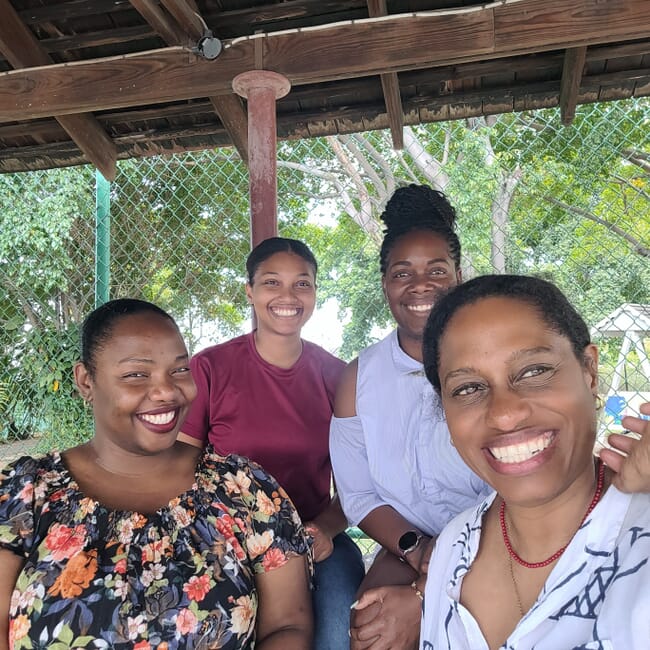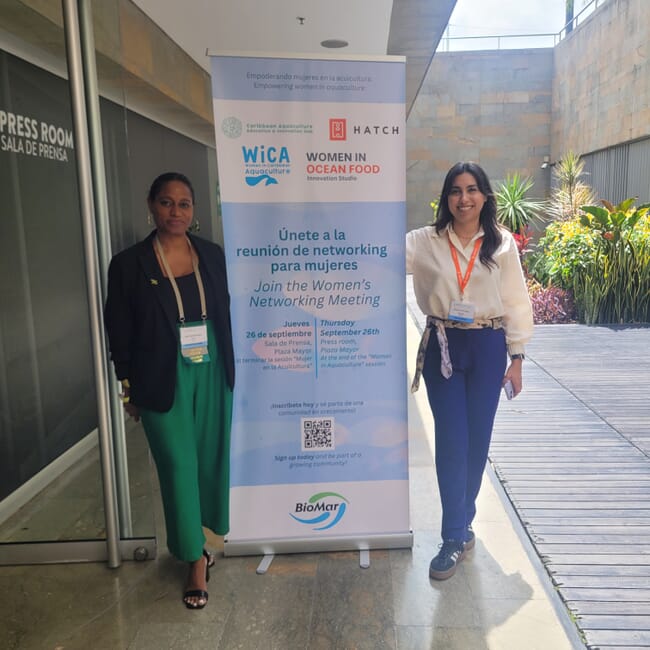
Gender dynamics in Caribbean aquaculture
Traditionally, aquaculture in the Caribbean has been perceived as a male-dominated field. However, recent trends indicate a significant presence of women, particularly in administrative, extension and research capacities. Women are increasingly taking on roles such as research scientists, farmers, processors and entrepreneurs, thereby sustaining families and communities and playing a crucial part in protecting natural resources and ensuring local food security.
Educational attainment and social implications
Higher education participation by Caribbean students is increasing both at home and abroad. However, female enrolment in – and graduation from – Caribbean colleges and universities usually outnumber males, with exceptions found in areas such as engineering and technology. Educational trends further highlight this shift; the Caribbean has witnessed a notable trend in higher education, with female enrolment. Graduation rates surpass those of males and with more women than men graduating with science-related degrees from universities across the Caribbean.
Despite their educational achievements, women remain underrepresented in leadership positions within aquaculture. The few who attain such roles often lack visibility, leaving emerging female professionals without clear role models to guide them toward leadership pathways. While this shift signifies progress toward gender equality in education, it has also led to social imbalances. Some men perceive themselves as marginalised due to the increasing prominence of women in higher education and professional fields, leading to tensions and the need for societal adjustments to these evolving dynamics.
Challenges in leadership representation
Despite their educational achievements and active involvement in aquaculture, women remain underrepresented in leadership positions within the industry. Decision-making roles are often dominated by men, sidelining women from high-level opportunities in policy making and industry leadership. This underrepresentation is compounded by a lack of visibility and mentorship, leaving young women entering the field without clear role models to guide them toward leadership pathways.

Addressing the leadership gap: initiatives and summits
Recognising these challenges, initiatives have been launched to empower women in Caribbean aquaculture and advance them into leadership roles. Notable examples are the first Women in Aquaculture in-person networking held during the World Aquaculture Society’s Latin American and Caribbean Chapter conference, held in Colombia, in 2024, followed by a Women in Caribbean Aquaculture Leadership Summit, held online from 10 to 22 March.
Organised by myself, as CEO of Caribbean Aquaculture Education and Innovation Hub (CAEIH), and Mariana Flores, director of women in ocean food from Hatch Blue, these pioneering gatherings had an objective to equip women in aquaculture, scientists and entrepreneurs with the tools to navigate their journey toward leadership in aquaculture.
This initiative aimed to foster networks, mentorship and provide strategies for overcoming barriers to leadership. While in-person networking builds connections and fosters collaborations, the online summit addressed key challenges preventing women from stepping into leadership roles, including limited access to funding and resources, gender bias in leadership, balancing work and family expectations, lack of visibility and mentorship, and cultural norms and industry perception. Through discussions, mentorship opportunities, and actionable strategies, the summit sought to provide participants with the necessary support to navigate these obstacles.
The evolving role of women in Caribbean aquaculture reflects broader societal changes and highlights the need for continued efforts to achieve gender equality within the industry. While significant strides have been made in education and participation, challenges remain in leadership representation and societal perceptions. Initiatives like the Women in Caribbean Aquaculture Leadership Summit play a crucial role in addressing these challenges by providing women with the tools and networks needed to ascend to leadership positions.
As the aquaculture industry in the Caribbean progresses, it is imperative to foster an inclusive environment that recognizes and values the contributions of women at all levels.
Understanding the societal implications of focusing solely on women, CAEIH has recognized the need to foster and encourage young men into the aquaculture sciences. Creating a focus on the next generation, the Caribbean Youth in Aquaculture was formed by the CAEIH to mentor both young men and women in undergraduate and graduate science, technology and agriculture programs. In doing so, the Caribbean aquaculture sector can achieve greater sustainability and innovation, benefiting from the diverse perspectives and skills that higher education in science and business skills brings to the table.
CAEIH extends its gratitude to the World Aquaculture Society, Latin American and Caribbean Chapter, BioMar and MoSoLucians for their sponsorship and support in advancing gender equity within the Caribbean aquaculture industry.
For replays of the Women’s Leadership Summit visit www.caribbeanaquaculturehub.com


